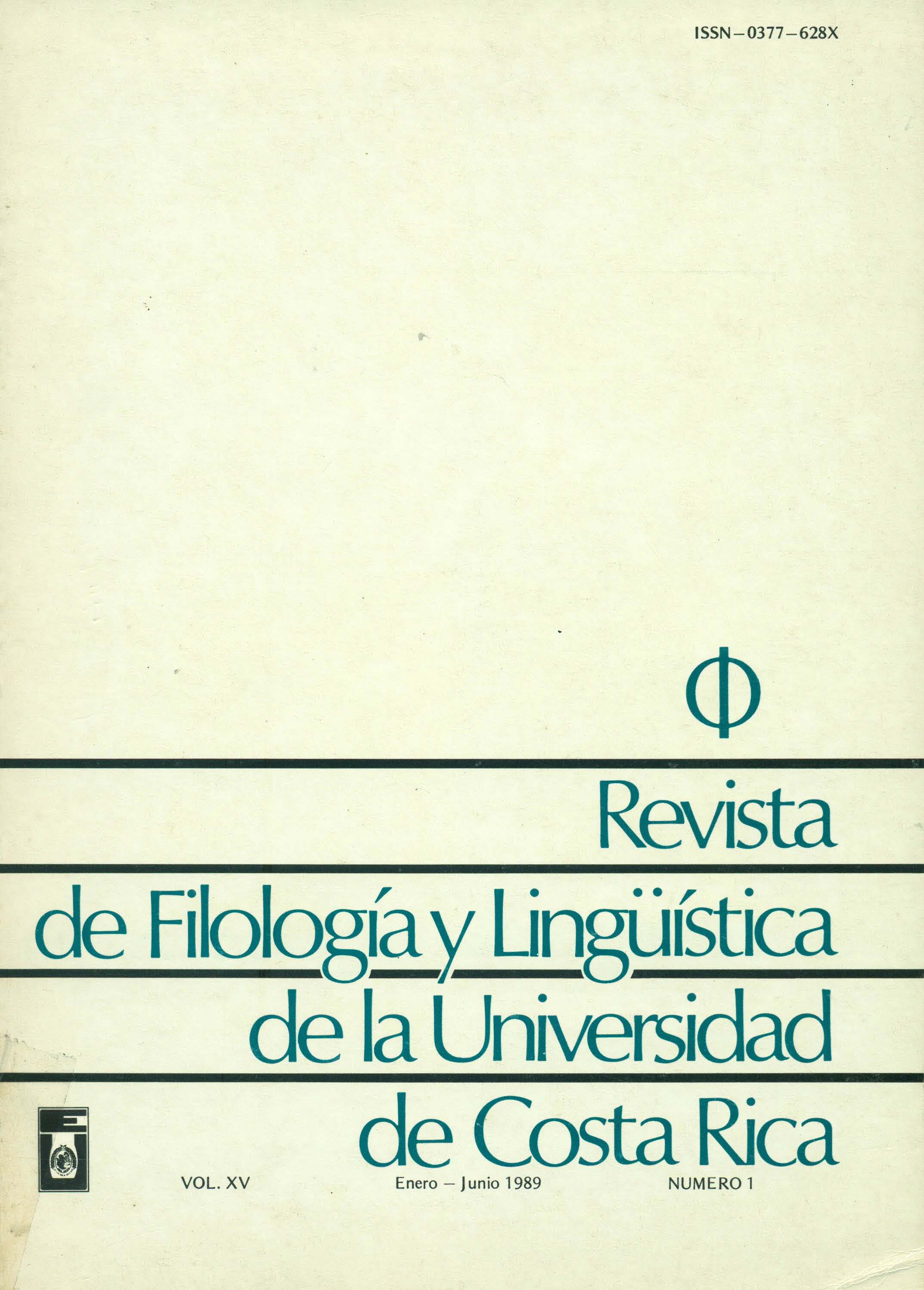Abstract
Este artículo trata las diferencias tipológicas generales entre latín clásico y latín vulgar / Lenguas Romances, las raíces LV de las lenguas romances y cambios lingüísticos de fecha y fundamentados que ocurren durante la transición del latín vulgar al romance. También sugiere los momentos iniciales de la consolidación Romance resultantes de la redacción de los primeros textos, entre América y romance existe una continuidad histórica, sin embargo, permanece y enigma exactamente cuándo y cómo la transición de uno a otro se llevó a cabo. Sin embargo hay un momento en que América se convierte en romance y los primeros enlaces son atestiguados por glosas.
This article treats the general typological differences between Classic Latín and Vulgar Latín/Romance Languages, the VL roots of the Romance languages and dated and substantiated linguistic changes occurring during the transition from Vulgar Latín to Romance. It also suggests the ínitial moments of Romance consolidation resultíng from the writíng of the first texts, Between Latín and Romance there is historical continuity, However it remaíns and enigma exactly when and how the transition from one to the other took place. Nevertheless there is a moment when Latín becomes Romance and the first links are attested by glosses.
References
Andersen James M., Aspectos estructurales del cambio lingüístico. Editorial Gredos, Madrid, 1977.
Curtius Emst Robert, Literatura europea y edad media latina. T.L, Fondo de Cultura Económica, México, 1975.
Chaurand Jacques, Introduction el l' histoire du vocabulaire francaise .Des origines au XV e. siécle, Bordas, 1977.
Iordan Iorgu y Manoliu María, Manual de lingüística románica, T.L, Editorial Gredos, Madrid, 1972.
Lapesa Rafael, Historia de la lengua española. Editorial Gredos, Madrid, 1980.
Lehman Winfred P., Historical Linguistics. An Introduction, Holt, Rinehart and Winston, Inc., 1973.
Lehman Winfred P. and Malkiel Yakov, Direction for Historical Linguistics, University of Texas Press, Austin and London, 1975.
Lüdtke Helmut, Historia del léxico románico.Editorial Gredos, Madrid, 1974.
_________ "Romanische Sprachen und deutsche Gesamtsprache", en: Lexikon der germanistischen linguistik, Studienausgabe IV, pág. 673, Max Niemeyer Verlag Tübingen, 1980.
Menéndez Pidal Ramón, Orígenes del español. Estado lingüístico de la Península Ibérica hasta el siglo XI. Espasa-Calpe S.A., 1968.
Moreno Jesús y Peira Pedro, Crestomatía románica medieval. Ediciones Cátedra, S.A., Madrid, 1979.
Polenz von Peter, Geschichte der deutschen Sprache, Walter de Gruyter, Berlin, 1978.
Quirós R. Manuel Antonio, "¿Cuándo se dejó de hablar latín en la Romania e lberorromania? ," en: Filo. y Lingüi. t (1 Y 2): 81-97, Universidad de Costa Rica, 1980.
Sapegno Natalino, Historia de la literatura italiana. Ed. Labor S.A., Madrid, 1964.
Vidos B.E., Manual de lingüística románica, Editorial Aguilar, Madrid, 1968.
Tagliavini Carlo, Orígenes de las lenguas neolatinas, Fondo de Cultura Económica, México, 1973.
Wartburg von Walter, Einführung in die Problematik und Methodik der Sprachwissenschaft, Ed. Max Niemeyer Verlag, Tübingen, 1962.
Wolff Philippe, Origen de las lenguas occidentales. 100-1500 d.C., Editorial Guadarrama, Madrid, 1971.

